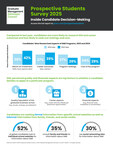Fintech PR
Honeywell Integrates Intel® Vision Products To Add Artificial Intelligence Capabilities To Video Security And Surveillance

 Reading Time: 3 minutes
Reading Time: 3 minutes
Honeywell (NYSE: HON) today announced a first-of-its-kind technology integration with Intel that will enable new artificial intelligence (AI) capabilities in its MAXPRO® connected security platform. The new security platform, which will support MAXPRO Network Video Recorders (NVR) and Video Management Systems (VMS), will incorporate Intel® Vision products that enable advanced analytics, deep learning and facial recognition capabilities. These greatly enhanced security solutions will drive cost and time savings by significantly reducing false alarms and will meet compliance requirements such as General Data Protection Regulation (GDPR) through identity anonymization.
“Ensuring the security of commercial buildings and the safety of those within them has always been Honeywell’s top priority,” said Pete Lau, President, Commercial Security, Honeywell. “With emerging technology like analytics, facial recognition and deep learning, Honeywell and Intel are connecting buildings and protecting people like never before.”
Advances in security and surveillance technology have increased demand for high-definition video and imaging offered by Internet Protocol (IP) cameras. The video surveillance global market is estimated to exceed $68 billion by 2023. At the same time, the technology to properly process the surge in vision data has lagged. End users require a solution that combines both building security and IT systems to address the challenge.
The integration of Intel Vision Products into the Honeywell MAXPRO NVR and VMS products will result in solutions that enhance site security and operator productivity. These integrated, customizable products will accelerate the processing time of each video stream and increase the number of cameras that can stream in real time through a single device. The adoption of Intel® Vision Accelerator Design products will provide Honeywell’s security offerings with advanced AI capabilities with computational efficiency, allowing them to analyze video data with improved detection accuracy.
“With rapid advances in AI technology fueled by the influx of enormous amounts of visual data, our customers are presented with powerful new opportunities in multiple areas including edge video analytics and security,” said Jonathan Ballon, Vice President, Intel Internet of Things Group. “The Honeywell MAXPRO solution, powered by Intel Vision Products, allows customers to process and analyze visual data in near real-time to make decisions faster, drive faster time to results and help ensure secure buildings, campus environments and banking institutions.”
Beyond the software and hardware integrations, the partnership will also leverage the Intel® Distribution of OpenVINO toolkit, which fast tracks the development of computer vision and deep learning inference into vision applications. Through the toolkit, end users can accelerate computer vision performance, shorten vision solution development, and streamline deep learning inference and deployment.
toolkit, which fast tracks the development of computer vision and deep learning inference into vision applications. Through the toolkit, end users can accelerate computer vision performance, shorten vision solution development, and streamline deep learning inference and deployment.
The toolkit’s deep learning capabilities will support Honeywell’s Face Recognition analytics, providing another layer of detail in the software that allows it to learn faces of known entities in an organization. The software is also capable of removing face recognition data it doesn’t recognize in compliance with GDPR requirements.
Honeywell will join the Intel IoT Solutions Alliance (ISA) and participate in Intel IoT RFP Ready Kits. A global organization comprised of more than 250 technology companies, ISA is dedicated to the development of scalable IoT and machine internet solutions. Intel IoT RFP Ready Kits are focused technology offerings that solve a class of market problems, have been deployed and tested in the field, and provide bundled hardware, software and support. The technology is designed to grow with customer requirements.
Honeywell MAXPRO and Face Recognition are among a suite of vision security solutions alongside Xtralis LoiterTrace, an image analysis tool that identifies and tracks suspicious activity, and Xtralis IntrusionTrace, a video analytics program for real-time intrusion detection. The solutions suite is ideal for high traffic, sensitive environments including enterprise campuses, pharmaceutical companies, and banking and financial institutions.
Honeywell Building Technologies (HBT) is a global business with more than 23,000 employees. HBT creates products, software and technologies found in more than 10 million buildings worldwide. Commercial building owners and occupants use our technologies to ensure their facilities are safe, energy efficient, sustainable and productive. For more news and information on Honeywell Building Technologies, visit http://www.honeywell.com/newsroom.
Honeywell (www.honeywell.com) is a Fortune 100 technology company that delivers industry specific solutions that include aerospace products and services; control technologies for buildings and industry; and performance materials globally. Our technologies help everything from aircraft, buildings, manufacturing plants, supply chains, and workers become more connected to make our world smarter, safer, and more sustainable. For more news and information on Honeywell, please visit www.honeywell.com/newsroom.
Intel (NASDAQ: INTC), a leader in the semiconductor industry, is shaping the data-centric future with computing and communications technology that is the foundation of the world’s innovations. The company’s engineering expertise is helping address the world’s greatest challenges as well as helping secure, power and connect billions of devices and the infrastructure of the smart, connected world – from the cloud to the network to the edge and everything in between. Find more information about Intel at newsroom.intel.com and intel.com.
SOURCE Honeywell
Fintech PR
At HCI 2025 global minds convene to accelerate the future of human capability with over 13,000 participants from 120 countries

RIYADH, Saudi Arabia, April 15, 2025 /PRNewswire/ — The second edition of the Human Capability Initiative (HCI), has concluded, hosting over 300 influential leaders, policymakers, and global experts from 40 countries, including academia, private sector, international organizations, and non-profits.
HCI 2025 was held under the patronage of His Royal Highness Prince Mohammed bin Salman bin Abdulaziz Al Saud, Crown Prince and Chairman of the Human Capability Development Program Committee (HCDP), the organization which hosts HCI.
HCI 2025 welcomed over 13,000 participants from 120 countries to the King Abdulaziz International Conference Center in Riyadh under the theme #BeyondReadiness. The conference saw over 100 agreements announced across industry and various economic sectors, with a total investment of SAR8.5bn (US$2.2bn). Among the key agreements, the prestigious London Business School revealed plans to establish a new office in Riyadh.
This year’s event brought together a stellar lineup, with senior government officials such as the Deputy Prime Minister and Minister of Education of South Korea, joining leaders from the private and nonprofit sectors. Global organizations and top academic institutions were also represented, including the World Bank, International Labor Organization (ILO), World Economic Forum (WEF), United Nations Development Program (UNDP), and UNICEF, as well as Microsoft, Google for Education, Apple Academy, University of Chicago’s Harris School of Public Policy and London Business School. The conference served as a dynamic platform for fostering collaboration and innovation in addressing the challenges of a rapidly changing labor market.
Speaking at the conference, Dr. Majid bin Abdullah Al-Kassabi, Minister of Commerce, said: “Saudi Arabia today is moving…from ambition to action. Vision 2030 is no longer a roadmap, it’s no longer a blueprint. It’s transformation in motion, reflecting the ambitions of the Kingdom’s leadership and reaffirming Saudi Arabia’s commitment to building a prosperous future for its people and strengthening its leadership on both regional and global fronts.”
During his opening remarks on the second day of the conference, H.E. Eng. Ahmed bin Sulaiman AlRajhi, Saudi Minister of Human Resources & Social Development, said: “Throughout history, progress has been driven by those willing to adapt, to innovate, and to embrace change. Today we find ourselves at a time when human capital is not a subset of economy and fiscal policy, it is the defining variable of global prosperity.”
In his closing address, H.E. Yousef Al-Benyan, Minister of Education, said: “Throughout this conference, we engaged in powerful dialogues and shared innovative insights that underscore the extraordinary potential within every individual. HCI 2025 demonstrated that sustainable human capability development and meaningful impact require cross-sector partnerships, collective responsibility, and strategic alignment across governments, private sectors, academic institutions and civil society.”
HCI hosted a ministerial roundtable, bringing together international human capability development officials alongside leading international experts in education and technology, as well as representatives from local and international organizations. The discussion centered on the theme ‘AI Skills for All’, which delved into strategies to ensure equitable access to this transformative technology.
The conference also marked the launch of the ‘Future Skills Initiative’ by H.E. the Minister of Commerce and Chair of the Economic and Social Committee of the Saudi–UK Strategic Partnership Council. This initiative seeks to foster the exchange of expertise to cultivate future-ready skills across 13 high-potential sectors. The launch was attended by 40 government officials and 100 business leaders from Saudi Arabia and the United Kingdom.
This year’s agenda focused on pioneering innovative learning models to equip individuals with the skills and knowledge needed to thrive in an evolving labor market shaped by rapid technological advancements, particularly in artificial intelligence (AI).
At the conclusion of the conference, the Minister of Education and Chairman of the Executive Committee of the Human Capability Development Program, alongside Eng. Anas Al-Mudaifer, CEO, and Dr. Bedour Alrayes, Vice President of the Human Capability Development Program (HCDP), extended their gratitude to HCI partners across the public, private, and nonprofit sectors – both within the Kingdom and globally – for their contributions to the event’s success.
The conference also provided speakers and delegates the chance to engage in Saudi culture, with the venue offering musical performances, traditional craft workshops and the taste of world-famous Saudi coffee.
Notes to Editors
About Human Capability Initiative (HCI):
The Human Capability Initiative (HCI) is the first global cooperative platform designed to unify international efforts and enrich global dialogue on the challenges and opportunities for developing human capabilities. Organized by the Human Capability Development Program – a part of the Vision 2030 realization programs – in partnership with Ministry of Education, HCI unites government entities, the private sector, and nonprofit organizations to foster collaboration and drive innovation in the realm of human capabilities.
The conference took place on 13 – 14 April, 2025 at the King Abdulaziz International Conference Center in Riyadh under the theme ‘Beyond Readiness’.
For more information, contact media@humancapabilityinitiative.org or visit:
Program: https://humancapabilityinitiative.org/wp-content/uploads/2025/04/HCI-2025-Official-Program.pdf
Website: www.humancapabilityinitiative.org
X: https://x.com/HCI_KSA
Instagram: https://www.instagram.com/hci_ksa/?next=%2F
YouTube: https://www.youtube.com/@HCI_KSA/videos
About the Human Capability Development Program (HCDP):
HCDP is one of the Vision 2030 Realization Programs (VRP) that aims to position the Kingdom of Saudi Arabia as a global leader. HCDP will prepare citizens with the required skills, values and knowledge to compete globally.
https://www.vision2030.gov.sa/v2030/vrps/hcdp/
About Saudi Vision 2030:
Under the leadership of the Custodian of the Two Holy Mosques, Saudi Vision 2030 was launched by His Royal Highness Prince Mohammed bin Salman Al Saud, Crown Prince, and Prime Minister, with a roadmap to build Saudi Arabia’s prosperous and bright future through a vibrant society, a thriving economy, and an ambitious nation.
Photo: https://mma.prnewswire.com/media/2665461/HCI_Riyadh_2025.jpg
![]() View original content:https://www.prnewswire.co.uk/news-releases/at-hci-2025-global-minds-convene-to-accelerate-the-future-of-human-capability-with-over-13-000-participants-from-120-countries-302429205.html
View original content:https://www.prnewswire.co.uk/news-releases/at-hci-2025-global-minds-convene-to-accelerate-the-future-of-human-capability-with-over-13-000-participants-from-120-countries-302429205.html

Fintech PR
Inex One: The Expert Network industry exceeds $2.5 billion

STOCKHOLM, April 15, 2025 /PRNewswire/ — Inex One, a leading market research platform, today announces the report “The Expert Network Market Sizing 2025”. The report reveals that the global expert network industry surpassed $2.5 billion in 2024, growing 9% after a few slower years.
To view the full report, visit: https://inex.one/blog/expert-network-market-size
“Expert networks start where Google (or ChatGPT) ends. They help businesses make better-informed decisions, to allocate resources and improve our societies, said Max Friberg, CEO at Inex One. “In a world of AI sludge and misinformation, true insights are worth ever more. “Our findings illustrate the growing demand for high-quality expert insights to inform strategic decision-making worldwide.”
Key Findings from the Report:
- The global expert network industry surpassed $2.5 billion in 2024, up 9% from the previous year.
- The main growth drivers were a) the rebound in private equity buyout activity, and b) growth in the survey product, as corporate and market research teams partly substitute away from traditional B2C survey panels.
- Other notable trends in 2024 were the consolidation and emerging winners in the transcript library business, and expert networks looking for cost-optimization with new office openings.
- Expert networks are expected to continue growing in the years ahead, as global value chains grow ever more complex.
The report contains an extensive dataset mapping the 35 leading expert networks over 12 years, containing:
- 2012-2024 revenue for the 35 largest expert networks, including source detail.
- Market share development 2012-2024 by individual network, by Category and Generation of expert network.
- 2020-2024 Hiring trends per top-15 expert network.
- Headcount and productivity benchmarks.
- Breakdown of spend by region (US, EMEA, RoW).
- Breakdown of spend by customer segment, and segment characteristics, including client segment evolution 2020-2024.
- Trends and outlook for the years ahead, including product innovations such as transcript libraries, and possible M&A activity.
About Inex One
Inex One is a leading digital platform and marketplace that connects strategy consulting firms, private equity firms, corporates strategy teams, market research firms, and other professionals with the best expert networks and survey providers worldwide. Trusted by more than 8,000 clients globally, Inex One offers unparalleled user experience, streamlining the management of expert calls and delivering valuable insights. For more information, please visit www.inex.one or contact us at info@inex.one.
Infographic: https://mma.prnewswire.com/media/2665169/Inex_One_2025_Infographic.jpg
Infographic: https://mma.prnewswire.com/media/2665170/Inex_One_Infographic.jpg
Logo: https://mma.prnewswire.com/media/2538353/5269112/Inex_One_Logo.jpg


![]() View original content:https://www.prnewswire.co.uk/news-releases/inex-one-the-expert-network-industry-exceeds-2-5-billion-302429098.html
View original content:https://www.prnewswire.co.uk/news-releases/inex-one-the-expert-network-industry-exceeds-2-5-billion-302429098.html

Fintech PR
New Survey Finds Aspiring Business Students Embrace Learning to Think Strategically–with Help from AI

GMAC’s latest global survey of business school candidates also finds increasing importance of ROI as the tech sector’s lure fades.
RESTON, Va., April 15, 2025 /PRNewswire/ — Individuals looking to enter business schools overwhelmingly say they want to learn how to think strategically and problem solve, according to the latest annual survey of global prospective students to business school released today by the Graduate Management Admission Council (GMAC). And with nearly half of prospective students reporting artificial intelligence (AI) as part of their ideal curriculum, candidates are expecting hands-on experience utilizing AI for strategy and decision-making.
“Employers have consistently informed us that they value hallmark skills like strategic thinking and problem-solving. Once again, we found that prospective students are on the same page with their future employers,” says Joy Jones, CEO at GMAC. “Employers have also identified socio-emotional skills as critical to becoming a business leader, presenting a great opportunity for business schools to encourage their current and future students to take advantage of the embedded opportunities to hone and highlight teamwork, adaptability, and emotional intelligence in their educational and career journeys.”
MBA reigns supreme with interest in business master’s on the rise.
As more business schools launch new and increasingly specialized master’s programs, candidates have taken notice. Compared to the previous year, there has been a significant jump in the share of candidates who prefer business master’s degrees. Even though preference for the MBA dipped slightly, roughly half of global business candidates still consider it their top choice. A deeper dive into the shift reveals that pre-experience candidates as well as those aged 30 and over are more inclined to apply for business master’s programs than before.
“For the more seasoned professionals seeking to pivot their career or college students contemplating becoming an accountant or marketeer, a relatively shorter and specialized business program could be an ideal educational path,” says Martin Boehm, executive vice president and global dean of undergraduate programs at Hult International Business School and a GMAC board director.
The survey also showed that more people are expressing preference for in-person business education programs—either full-time or part-time in format—reversing a multi-year trend of growing popularity of hybrid and flexible programs since the inception of the pandemic.
Labor market uncertainty impacts ROI considerations, desired industries.
Cost remains a top barrier for candidates to get graduate business degrees no matter where they are located or how advanced they are in their career. Today’s economic and employment outlook has heightened people’s awareness around opportunity cost and return of their investment. In fact, ROI remains prospective students’ most considered factor when researching GME, with a noticeable increase in how many survey respondents say this is among their most important aspects of choosing a business school.
The uncertainty also reflects in the industry they are looking to enter upon graduation. While consulting, financial services, and technology still top the list, there has been a small but statistically significant dip in candidate interest in the tech sector. This is likely related to a challenging year for major tech companies, where recent layoffs hit hard not just the technical engineer positions but also more business-oriented roles in marketing and talent recruitment.
Global economy and geopolitical intricacies influence study destinations.
Study destination preferences of global candidates have remained steady over the past five years, with the United States and Western Europe continuing to occupy the top spots for students intending to study abroad. At the same time, affordability and being closer to home are deciding factors among candidates who want to study in regions like Asia, the Middle East, and Africa—where rising inflation and fluctuating currency exchange rates have dominated recent headlines.
“As the global economy becomes increasingly uncertain, we’re seeing candidates from around the world seeking out the value for money, unique perspectives, and hands-on experience with complex problems they can gain by studying in regions with young populations and fast-growing, dynamic markets,” says Catherine Duggan, director (dean) of the University of Cape Town Graduate School of Business and chair-elect of the GMAC Board.
About the Prospective Student Survey
With 15 years of survey responses representing all world regions, the GMAC Prospective Students Survey has provided the world’s graduate business schools with critical insights into the decision-making processes of people currently considering applying to a graduate management education program. This year’s summary report analyzes 2024 data from 4,912 respondents across 147 countries—45 percent female and 67 percent Gen Z—offering insights into evolving candidate decision-making to guide business school strategies. The full report with additional findings is available on gmac.com.
About GMAC
The Graduate Management Admission Council (GMAC) is a mission-driven association of leading graduate business schools worldwide. GMAC provides world-class research, industry conferences, recruiting tools, and assessments for the graduate management education industry as well as resources, events, and services that help guide candidates through their higher education journey. Owned and administered by GMAC, the Graduate Management Admission Test™ (GMAT™) exam is the most widely used graduate business school assessment.
More than 13 million prospective students a year trust GMAC’s websites, including mba.com, to learn about MBA and business master’s programs, connect with schools around the world, prepare and register for exams and get advice on successfully applying to MBA and business master’s programs. BusinessBecause and GMAC Tours are subsidiaries of GMAC, a global organization with offices in China, India, the United Kingdom, and the United States.
To learn more about our work, please visit www.gmac.com

Photo – https://mma.prnewswire.com/media/2664051/GMAC_pss_2025_Infographic.jpg
Logo – https://mma.prnewswire.com/media/2664006/gmac_Logo.jpg
![]() View original content:https://www.prnewswire.co.uk/news-releases/new-survey-finds-aspiring-business-students-embrace-learning-to-think-strategicallywith-help-from-ai-302428989.html
View original content:https://www.prnewswire.co.uk/news-releases/new-survey-finds-aspiring-business-students-embrace-learning-to-think-strategicallywith-help-from-ai-302428989.html

-

 Fintech7 days ago
Fintech7 days agoFintech Pulse: Your Daily Industry Brief – April 08, 2025 – Sipay, DeFi Technologies, Fintech Companies, Lithuania Fintech Hub
-

 Fintech PR4 days ago
Fintech PR4 days agoAB Charity Foundation Launches to Pioneer a New Global Model for Public Good Driven by Institutional Trust and Technology
-

 Fintech6 days ago
Fintech6 days agoFintech Pulse: Your Daily Industry Brief – April 09, 2025: Hawk, Ryft, Alinea Invest, Honeycomb Credit, Workcap
-

 Fintech PR4 days ago
Fintech PR4 days agoAccount Payables and Receivables Application Market on a Steady Growth Path: Projected to Grow Through 2030 at CAGR 9.70%
-

 Fintech5 days ago
Fintech5 days agoFintech Pulse: Your Daily Industry Brief – April 10, 2025 Featured Companies: Solid, Transficc, Visa, Notre Dame Fintech Initiative, Leading European Fintech Firms
-

 Fintech PR4 days ago
Fintech PR4 days agoUN Global Compact and private sector move to accelerate progress on SDGs in Africa
-

 Fintech PR4 days ago
Fintech PR4 days agoPhoenix Aviation Capital and AIP Capital Announce the Closing of a Pre-Delivery Payment Facility with up to $300 Million in Total Commitments
-

 Fintech4 days ago
Fintech4 days agoFintech Pulse: Your Daily Industry Brief – April 11, 2025 (Featuring Synapse, Yotta, Citadel Securities, Block, Citi, Valley Bank)
















